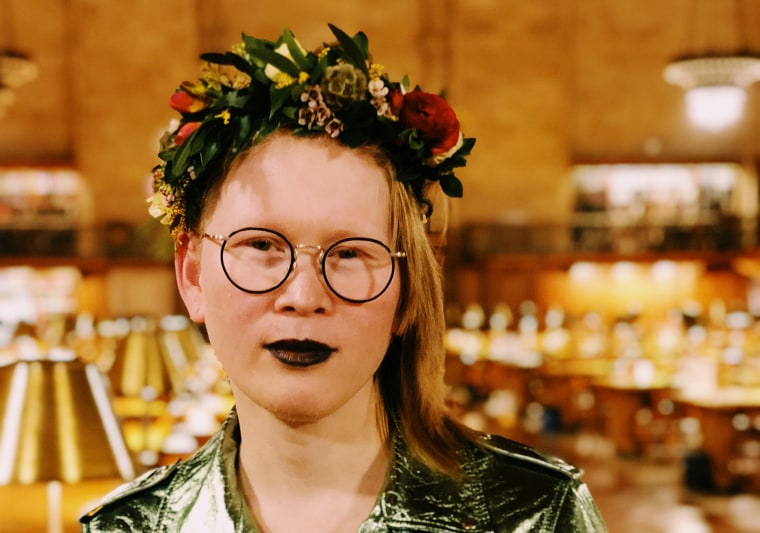I’ve been struggling for a while about being visible as a transgender person. I spent so much time trying to pass in my early transition period, hoping that someday everyone would just see me like any other woman. But over time, once people stopped being able to tell I’m trans, I was surprised to find that I missed being recognized, especially by other queer and trans people.
This is the paradox of trans visibility: not only do we want to control to whom we're visible for our own safety, but it's hard to only be partly visible. Being trans is so much a part of my life's journey that I want people to be aware of my history and the struggles it took for me to get to where I am, yet I don't want being trans to subject me to cruelty, discrimination or violence.
I was at a new friend’s cocktail party recently when I started talking about how I became popular in high school after I brought a gorgeous college freshman girl to my prom. As I was talking, I suddenly realized that most of the half dozen people who were listening didn't know — and couldn't tell — that I am a trans woman. I didn’t want people to think I went to some super-progressive high school where queer women were popular, so I had to pause my story to awkwardly insert, “I was a gay man at the time.”
But after that momentary interruption, and as everyone went with the flow, it felt good to know I could reveal being trans to strangers without much hoopla. When I’ve tried to casually mention my trans status in the past, cisgender people have treated it as open season for asking me everything trans-related about which they’ve been curious — hormones, surgery, sex — so I've felt like something between a circus act and a trans-Wikipedia. That led me to either not talk about it at all or engage in a long preamble like, I’m going to tell you this but please don’t make it a big deal and you can only ask me about it if I explicitly say it’s OK, but I’m trans.
The last few years of greater trans awareness — Caitlyn Jenner has had at least one positive effect after all — seems to have resulted in people around me both knowing more about trans issues and learning how to keep their objectifying questions to themselves. At that party, I realized that, if trans folks could be blasé about our identities more often, and cisgender folks could choose to not make a big deal out of it, then maybe asides like I was raised a different gender eventually wouldn't be awkward (let alone dangerous) at all.
At the same time, I'm well-aware of the hardships that come with being a visible trans person. I’ve experienced those obstacles myself — the taunts on the street, the rejections for jobs for which I was qualified, the refusals of potential roommates to live with me. Yet over the years, I’ve learned to separate the bad things people have done to me because they saw that I was trans, from the joy I feel about myself because I’m trans.
I’m not talking about the simplistic narrative of getting out of a body in which I was trapped; I’m talking about my own satisfaction and yes, "pride," in finding the courage to face these obstacles so that I could express the full range of my gender — including a womanhood I now embody after being born with a penis and raised as a boy.
Just last week, I sat across the train from someone with long dark hair in a dress and combat boots who I'm pretty sure was trans, and I smiled at them conspiratorially. My suspicions were seemingly confirmed when they smiled back — though I then wondered if they might be just interested in me, or if they were trans and also interested in me.
It was a moment when I wanted my body to read as trans more clearly, to communicate my history in a foolproof way so that I didn’t have to say anything to be recognized. I didn't want to have to say I’m trans; I wanted that to be understood without words because I knew that my words would imply to others that I thought the person I was talking to was trans, and that could risk making them visible without their consent.
Maybe someday we will live in a world where everyone celebrates the courage trans people have for being ourselves, and not in an icky, patronizing way. Maybe someday we will live in a world in which I don't have to think about if I'm too visibly trans or too invisibly trans. Maybe someday we'll live in a world in which saying I'm trans when that feels too invisible will be as noteworthy as saying I'm left-handed. Maybe saying it wouldn’t even be awkward — or, if it were, maybe it would still be alright.

